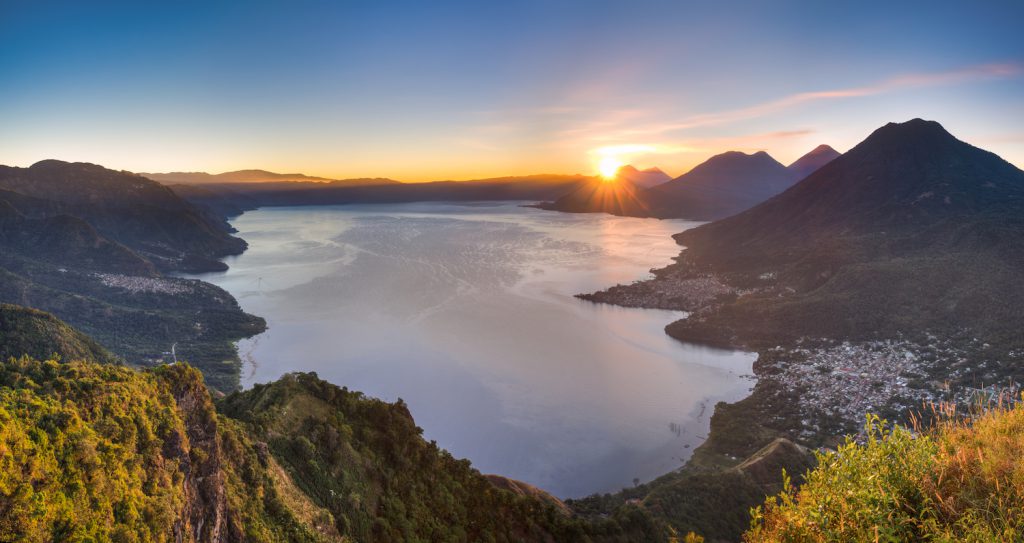Arrival Waters

I am about 70 years away from the experience that led to this poem and about 50 years away from anthropology. Some 20 years ago or more, I wrote a book titled Scandals in the House of Birds: Shamans and Priests on Lake Atitlán. It is a rewrite, very different, of Los Escándalos de Maximón, which was published in Guatemala years before because my boss, Professor Robert Redfield, had died without publishing it. Los Escándalos was popular in Guatemala, and I often had to listen to tour guides droning on about its contents. I also heard that it had been pirated in Guatemala. This time, I was interested in writing a book without any scientific jargon whatsoever (that is, leaning toward the field of poetics) yet still totally responsible to the science of anthropology. Gratefully, I had grants from the Wenner-Gren Foundation, the Social Science Research Council, and the American Philosophical Society in Philadelphia. (I did not use the third because the first two were sufficient.) Scandals was published in 1997 by the Italian publishing firm Marsilio, which had a branch in New York. The NYC editor was a very old friend and had asked for this text. Marsilio closed its NYC presence down very shortly after publication, and the book never had a chance. I believe it is worthy of being republished with some alterations.
I thought of Scandals as the link between poetry and anthropology in my existence. Much more recently, I had decided to try something of the same kind using whatever archaeological discourse might have in common with poetry. I immediately found that written archaeology was about the least poetic thing in the universe of learning. But I went ahead and was granted a small book of poems written and called A Lake Inside the Sun—the Lake being Lake Atitlán, the Sun a secret of mine. Anthropological fieldwork was blended in with the archaeology. Suddenly, however, in a way I find it hard to explain, the great German poet Friedrich Hölderlin (1770–1843)—the “poet of poets” and “first modern poet” for many, whom I had loved for many years—rammed into my life and work was begun on The Hölderliniae: an emotional storm that lasted many weeks. In essence, it is a long conversation between Tarn and Hölderlin. If you reach such a state, you are left as nothing on earth but Poet. This book, which I call, in short, The H, will be out from New Directions on April 6 of this year.
Whether, in my 90s, I have the strength to get back to “A Lake” is anybody’s guess. Meanwhile, the poem “Arrival Waters” is part of the collection A Lake Inside the Sun.
Arrival Waters
I.
Ministerio de Educación Pública
Instituto Indigenista Nacional
Guatemala, Central America.
DIARIO DE CAMPO/FIELD DIARY:
Bus departure from Guate City: 05.00 a.m.
September twenty-six, One nine five two;
Aetat: two four.
Long rocking thru the Highlands.
Approx. 08.30 a.m. bus curling round,
First sight Lake Atitlán. Heart rapture.
Rapture of the whole being being born.
As child had never let word “country”
be soiled by any human structure. Pure
“Nature” sought alone. Flowers & Birds,
in landscape, his major entertainment.
II.
Dullness fatigue. Leg cramps. The misted
mountains. Suddenly: appears below
and parallel to him a vast immensity of Waters.
(Yes, yes, you do require this double first
arrival, breaking the old life from the new.)
Come down in widening circles, the
towering Volcanoes three surrounding
Lake crater as if blessing such a sacred “Ocean”
(you’ll see now, by and by, how all of Water
links right on down to a Primordial Ocean)
and gaining in precision. Thick vegetation:
corn milpa fields feeding mind, heart, and body,
blankets the land. But ever eyes returning
into the Lake, hypnotically still, as if they half
expected Waters to stand up, “shedding
slow tears of joy upon that silent landscape.”
III.
At night small yellow Sun crest sewn on
the right belt-loops of all his pants:
heraldic image. No sleep: hallucinations.
The night profound, a waking dream yet
unilluminated. And in the midst of this
recovered night, the Lake gave up its
boundaries, becoming one vast chasm of
darkest Waters whose waves crept up
toward the uttermost departments of the earth.
While he: a floating, feather thing,
meandering within it, high and low,
his lips brushing the caps of mountains,
the three Volcanoes, the hair of all beloveds
once upon time in other worlds. A quote
recalled: And “If this night, this night of
man, were yet the night of destiny, as it
might prove to be, then benediction on it
until the coming of the light.” His thought,
insatiable romantic that he was: “Thus Adam,
eons ago, went out of Paradise and
turning anti-clockwise round the earth,
bearing within him a heavy weight of soul,
walked through the seven gardens of the earth
(later Kashmir, later the blue Tibets)
and entered smoothly once more into Eden.”
IV.
Had he then known of the Primordial Ocean,
home of the ancestors, the kings, the old, and newly
dead—Waters in which day-keepers ever bathed,
lords of the calendar,
from generation to generation,
and shamans conjured up towering vision serpents,
from generation to generation
out of their beans and beads
with messages and prophecies
for those on middle earth,
he might have seen a fate within the Lake,
dead Sun surrounded and rising from the startled waters,
illuminate his life from that day into this.

























